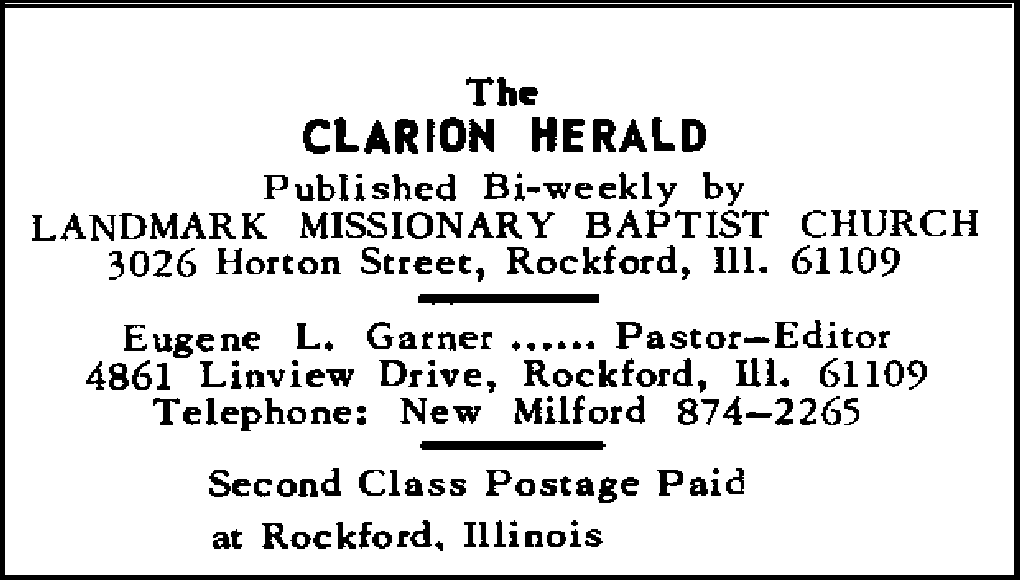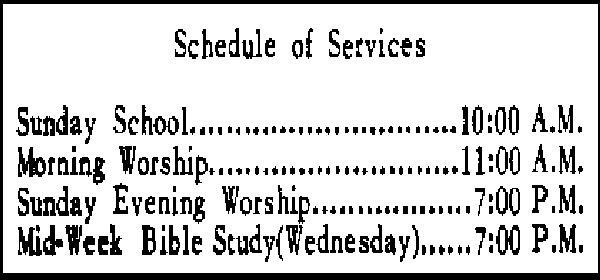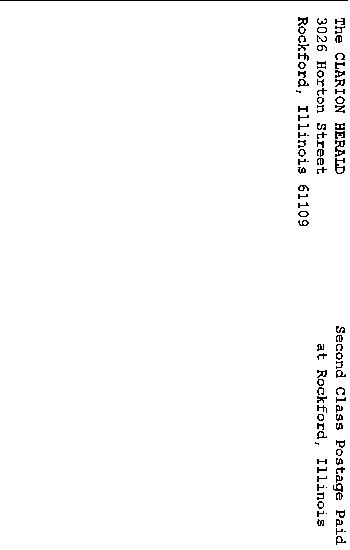
|
 |
 |
 |
|
 
|
|
|
"POSSESSIONS AND CAPACITY"
Since the death of Moses, Joshua had been a faithful leader of ALL Israel. He had shown no partiality or respect of persons. He had endeavored to follow the Lord faithfully -- knowing that His way was always best for His people. It seems, however (from Joshua 17:14-l8), that many of his brethren had not learned this lesson.
It actually appears that the Ephraimites and Manassehites expected preferential treatment from Joshua, since he was of the tribe of Joseph (Num. l3:8); but no such favor would be shown them, (comp. Matt. 20:20-23).
Thomas Scott has made an interesting practical observation on this passage: "Alas, Professing Christians are often more disposed to murmur, envy and covet, than to be content, thankful and ready to distribute. Indeed, we are more prone to grasp at what belongs to others, than to manage our own to the best advantage; and many complain of poverty, and encroach upon the benevolence of others, because they rebel against the sentence of Divine justice, 'Thou shalt eat thy bread in the sweat of thy brow'."
(Continued on Page 3)
|
|
|
|
THE NECESSITY OF RIGHT HEARTS
"For I say unto you, that except your righteousness shall exceed the righteousness of the scribes and Pharisees, ye shall in no case enter into the kingdom of God", (Matt. 5:20).
Though religiously devoted and zealously involved in religious study, meditation and service, the Scribes and Pharisees were missing the kingdom of God. The Pharisees were the strictest sect among the Jews of that era -- meticulously straining to meet every legalistic requirement of the "letter" of the law. Scribes were the scholarly "theologians" -- giving themselves wholly to the understanding and interpretation of the law.
These two classes, in the covenant nation, were regarded as having climbed to the very summit of that righteousness thought to depend on LAW KEEPING -- requiring the occupation of a lifetime. Yet, Jesus declared such "goodness" to be INADEQUATE. Righteousness, in His new order, must exceed or excel that of the most highly respected religious leaders of the covenant nation in His day. It was based on the wrong principle -- rooted in the idea that one might MERIT the
|
|
|
|
|
Page - 2
blessings of the Eternal One.
The desire of every corrupted human heart is for a religion of "merit", as contrasted with one rooted in FREE GRACE. Vain man would honor, exalt and save himself rather than admit his utter spiritual bankruptcy and cast himself upon the love, mercy and grace of his benevolent Creator. Jesus shows that the righteousness required by the Kingdom of God involves something more vital and real than the mere performance of a few formal rituals; it involves the necessiy of RIGHT HEARTS!
An honest heart will acknowledge its utter helplessness and wretchedness before a holy God. It will, with gratitude, accept the glorious provision that He has so graciously made for its salvation and acceptance -- in the person of His own Dear Son.
IS YOUR HEART RIGHT WITH GOD'?
*************
SERVICE IS LOVE IN WORK CLOTHES...
|
|
|
|
I AM NOT WORTHY!!
John the Baptist was not spoiled by success. Though multitudes came to hear his message he never manifested the disgusting, unapproachable attitude of "super-spirituality" so often observed in foolish religious leaders in succeeding centuries. Thus, when Jesus came to seek his baptism, he immediately recognized Jesus Christ as his SUPERIOR -- as One of excelling worth and worthiness. So, he protested: "I have need to be baptized of Thee, and comest Thou to me'?"
Had he not already declared: "He that cometh after me is mightier than I, whose shoes I am not worthy to bear?" He knew that his was not to be the final word. His message was not his own; he stood as the spokesman of God at a moment when indescribable blessing was drawing near to the covenant nation -- if it would only REPENT!
There was nothing of the proud Pharisee in this man of God. Nor was he a cowardly steward who feared to administer what the Master had committed to his trust. He was an humble servant who laid no claim to merit; who knew himself a sinner -- undeserving of divine grace. He feared no king, would compromise no principle, and loved not his own life unto the death. But he knew that, in the presence of Jesus, he stood before One Who was his superior IN EVERY RESPECT. He could not quite understand Jesus coming to request baptism at his hands.
One must not think that John and Jesus stood and argued over this matter. When John raised the question
|
|
|
|
|
Jesus immediately answered it to the satisfaction of His forerunner. He said: "Suffer it to be so now: for thus it becometh us to fulfill all righteousness", (Matt. 3:15).
It must be remembered that John administered a "baptism of repentance for the remission of sin". God had sent him to baptize, and it was the obligation of EVERY godly Israelite to submit himself to that baptism. This would indicate a denial of self, and a willingness to submit their lives to the new "order" that was about to supplant the old -- in God's on-moving purpose of redemption. Being a man, and a godly Israelite, Jesus also came to receive John's baptism, but for a different purpose. He had no sin and, thus, needed no repentance, (2 Cor. 5:21; Hebrews 4:15; 7:26; I Pet. 2:22; I John 3:5).
Perfect righteousness brought Jesus to John's baptism. His brethren were brought there by a consciousness of their SIN. In baptism He identified Himself with His brethren and their sin -- not to approve it, but symbo1ically declaring His willingness and intention to bear that sin in His own body, as He became obedient unto death.
Here Jesus identifies Himself as the "suffering servant" of ancient prophecy -- the key that unlocks the meaning of the entire New Testament, (Luke 24:25-27, 44-47; Acts 2:22-33; 3:13, 18, 26; 4:27, 30; 8:32-35; Phil. 2:5-11; Heb. 5:7-9; I Pet. 1:11; 4:1; 5:1; Rev. 5:6, 9-12).
Israel had FAILED to render acceptable obedience to God. What
|
|
|
|
they had failed to do, nationally, Jesus would now accomplish for them (and for all who would willingly yield themselves under His lordship) representatively.
At Jesus' word, therefore, John performed this baptism as the climactic point of his ministry. From this point forward his own ministry would diminish as that of the Master increased. Nor would the humble servant of God complain about the "injustice of it all"; the "friend of the Bridegroom" would, rather, REJOICE.
Can YOU, knowing your unworthiness, rejoice in the sufficiency of God's grace?
POSSESSIONS ..... Continued
Thinking their inheritance too small, the children of Joseph complained against Joshua, their leader and against God, the faithful Giver. And the situation against which they complained was occasioned by their own slothfulness and cowardice.
These people were perfectly willing to admit past blessings but questioned the justice of their present allotment -- while doubting the sufficiency of God's future provisions. They thought their greatness minimized. Had Joshua forgotten their glorious history? Had not Joseph spared the lives of ALL his brethren? Did not this MERIT more than they had received?
It appears that these men felt they could pressure Joshua into favoring them, beyond God's appointment, because he too was of Joseph.
|
|
|
|
|
Rather, he issued a stern rebuke to their presumptuousness.
In arrogant pride they were exalting themselves out of all due proportion to the character of their lives and the cowardice of their hearts. Arrogant pride, and a high-mindedness that claims superiority without any foundation in reality, always invites destruction. Their restless discontentment was nothing short of covetousness; they must learn to find satisfaction in God's sufficiency. Their unbelief, in fearing the charioted Canaanites and failing to trust in God, was shameful. Their inheritance was minimal because of their own unwillingness
|
|
|
|
to possess more by the "good fight of faith". And this is a pitfall of which all God's people need to be aware, (Prov. l8:9; 19:24; 24:30; Matt. 25:26; Heb. 6:12). So, Joshua challenges his brethren (who are truly a greet people) to "possess" their full allotment. The hill-country may be theirs if they will cut down the forest and drive out the Canaanites -- remembering that their God is well able to melt their chariots of iron and to bring down their strength in behalf of those who trust in Him.
It is well to remember that God gives to each of us according to our capacity -- our ability to appreciate the trust and use it for His glory, (Matt. 25:15; Eph. 3:18-19; comp. Acts 11:29; I Pet. 4:11). The fuller use we make of what God has entrusted to us, the more we become capable of receiving. And the more we possess of Christ Himself, the more we will be enabled to desire and have of His fulness.
ANCHORAGE MEETING SCHEDULED
This editor has accepted an invitation of Pastor Leonard C. Ford, and the First Missionary Baptist Church of Anchorage, Alaska, to speak in a Protracted (evangelistic) Meeting from July 4 - 16. I look forward to this opportunity with eagerness -- trusting God to use the efforts put forth by church and evangelist for the salvation of precious souls, the edification of the saints, and the furtherance of the Gospel -- all to the glory of God.
-- Eugene L. Garner
|
|
|
|
|
 |
 |
 |
|




